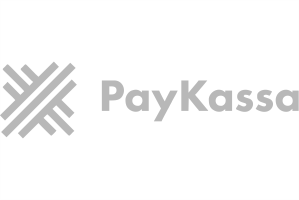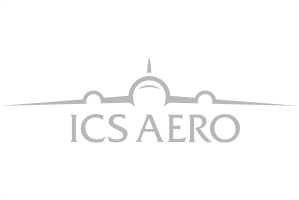Despite the fact that the zone of Malta is not considered a classic tax-free jurisdiction, it is very profitable and prestigious to have a company here. In the European Union, it is possible to carry out any lawful activity. Malta may be suitable for establishing your business presence due to its strategic location, stable and developed economy with an opportunity to enter many local markets. Companies in Malta are especially attractive for the ship owners possessing boats carrying up to 1000 tons - they are exempt from individual income tax. If you are considering this jurisdiction as an option for your choice, a business presence here may be arranged in one of these forms.
Advantages of the Jurisdiction
If you have doubts about whether to choose an option of company formation in Malta or selected other jurisdictions, there are a number of arguments in favor of company registration in Malta:
- Financial and economic stability.
- Easy and fast registration. The new company can be opened in two weeks, and ready company may be purchased in just 1 day.
- The personal presence of the beneficiary in Malta is not required.
- Security of personal data. Nominal representatives, residents of Malta, will act on your behalf. This will ensure full confidentiality for the beneficiary.
- Loyal tax legislation.
Major Forms of Legal and Business Presence
If you want to incorporate a company in Malta or arrange your business presence in any other possible way, our specialists can preliminarily suggest you these options:
- Private Limited Liability Company – a Maltese entity where the liability of shareholders is restricted to the amounts of contributions made. The minimum number of company members is two persons. The maximum number of participants of such a company is limited to 50. Also, statutory documents should contain restrictions concerning the transfer of shares and prohibit any invitation of such shares to the public. Registration of this company in Malta requires the formation of authorized capital in the amount of EUR 1,200 20% of which should be payable at the moment of registration. This considered entity should have one director minimum. Firms that operate in the form of a private limited liability company may carry out any activity recognized as a legal one by international law.
- Public Limited Liability Company – an entity where the liability of shareholders is also limited to the amounts of the contributions made. The minimum number of company members is two persons. Still, the entity is allowed to offer its shares to the public. To register this entity, minimum statutory capital of EUR 47,000 is required and it has to be entirely deposited at the time of registration. A public company should have two directors minimum.
- General partnership – this is a business option that unites partners who jointly conduct business and bear unlimited liability for the outcomes of such. Registration of such a partnership is required according to the Maltese laws.
- Limited Partnership – another form of a partnership where should be (i) at least one general partner whose liability for the partnership's operation is not limited in any way and who manages the joint activity of the partnership by default, and (ii) one or more limited partners whose liability is limited to the amounts of contributions made to such partnership.
Registration Requirements and Steps
If you intend to conduct company registration in Malta, the process should be completed by passing these preliminary stages:
- Defining your business objectives you are going to realize through the Maltese entity.
- Choosing, verifying, and reserving the business name for a future Maltese company.
- Collecting information about shareholders, beneficiary owners, and future managers of the Maltese company.
- Arranging the registered address for the future entity.
- Depositing a minimum required amount of statutory capital.
- Drafting the Memorandum and Articles of Association for the future Maltese company.
- Forming and submitting the set of required documents to the registrar.
- Registration for tax and social security purposes.
- Obtaining licenses and special permits (if necessary).
The actual plan of registration may slightly vary depending on the business objectives and background of the case. Aotopay specialists may consult you more precisely on the matter.
Legal and Regulatory Framework
Malta has created very favorable conditions for doing business and making investments. The local legislation has been made in line with the European standards. Malta is a suitable jurisdiction for building flexible corporate structures that enjoy favorable tax conditions, including thanks to the existence of EU-based enterprises.
The process of establishing a company in this jurisdiction is straightforward and is not related to lots of bureaucratic formalities. It is required to maintain accounting records and submit annual financial statements in the country for any company. The scope of annual formalities includes the preparation of financial statements, annual returns, the information about the number of employees and share allotment (if any) for the next audit. For certain areas of business (investment, banking activity) license is required. Aotopay specialists may support you effectively in these cases.
The major legal acts regulating business matters are the Companies Act, the Financial Institutions Act, the Investment Services Act, and the Company Services Providers Act. The major state authorities in the area of doing business are the Malta Business Registry and the Malta Financial Services Authority.
Tax System of Malta
If you are thinking about company registration in Malta, these tax highlights may be of help while making such consideration:
- Corporate income tax rate – formal is 35%, but actual is 5%*
- Personal income tax rate – 35%
- Value-added tax rate – 18%
- Withholding tax (for non-residents) – (i) dividends - 0%, (ii) interests - 0%, (iii) royalties - 0%
- Capital gains tax rates – may vary depending on the source of income and taxpayers.
*The rate of corporate income tax established in the local legislation is formally 35% and is calculated on the amount of all income obtained. But, actually, this rate is 5% for trade companies. At the initial stages of doing business, it has to pay tax in the amount of 35% of the total income obtained. But, during the next months, 6/7 of this sum is returned (i.e., 30%). For royalties and a non-controlling set of shares, the amount of return is 5/7 of the amount of tax paid (actually, 10% corporate income tax is paid by an enterprise). In some cases, even total exemption from paying corporate income tax is possible. Contact Aotopay lawyers to get more details about favorable tax conditions that may be available in your concrete business case.
How Aotopay Specialists May Assist You
If you find an option of company formation in Malta suitable for you at the moment, Aotopay specialists can provide you with more detailed information about the considered jurisdiction and suggest alternatives to you also. Our lawyers are glad to create a plan for establishing your business presence in this jurisdiction, draft all required documents, and arrange the interaction with local authorities. We will be also glad to open a corporate bank account for your prospective Maltese company as well as support its further operation in this country. Our professionals are experienced in dealing with ordinary and non-standard matters of doing business. Reach us shortly for more precise discussions and suggestions.
 Check and reserve of the company name Obtaining approval from the registrar for the company name
Check and reserve of the company name Obtaining approval from the registrar for the company name



 Company registration, including state fees Preparation of a full package of documents, depending on the chosen form of ownership, cooperation with the relevant authorities prior to obtaining information on company registration
Company registration, including state fees Preparation of a full package of documents, depending on the chosen form of ownership, cooperation with the relevant authorities prior to obtaining information on company registration



 Legal address for 1 year Provision of legal address for your company in a given jurisdiction, eliminating the need to purchase or rent real estate
Legal address for 1 year Provision of legal address for your company in a given jurisdiction, eliminating the need to purchase or rent real estate



 Support in opening an account outside of Malta
Support in opening an account outside of Malta



 Support in opening an account with a local bank
Support in opening an account with a local bank



 Services of local director for 1 year Providing a resident director of a given jurisdiction or the EU, which is necessary for registering a company and opening an account at a local bank
Services of local director for 1 year Providing a resident director of a given jurisdiction or the EU, which is necessary for registering a company and opening an account at a local bank
























